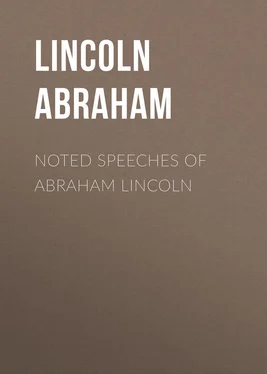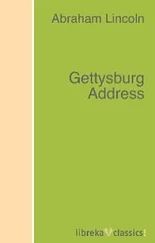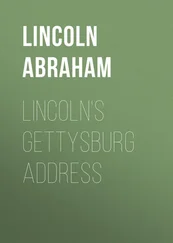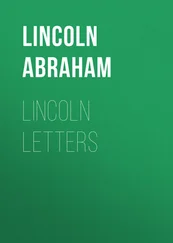Abraham Lincoln - Noted Speeches of Abraham Lincoln
Здесь есть возможность читать онлайн «Abraham Lincoln - Noted Speeches of Abraham Lincoln» — ознакомительный отрывок электронной книги совершенно бесплатно, а после прочтения отрывка купить полную версию. В некоторых случаях можно слушать аудио, скачать через торрент в формате fb2 и присутствует краткое содержание. Жанр: foreign_antique, foreign_prose, на английском языке. Описание произведения, (предисловие) а так же отзывы посетителей доступны на портале библиотеки ЛибКат.
- Название:Noted Speeches of Abraham Lincoln
- Автор:
- Жанр:
- Год:неизвестен
- ISBN:нет данных
- Рейтинг книги:4 / 5. Голосов: 1
-
Избранное:Добавить в избранное
- Отзывы:
-
Ваша оценка:
- 80
- 1
- 2
- 3
- 4
- 5
Noted Speeches of Abraham Lincoln: краткое содержание, описание и аннотация
Предлагаем к чтению аннотацию, описание, краткое содержание или предисловие (зависит от того, что написал сам автор книги «Noted Speeches of Abraham Lincoln»). Если вы не нашли необходимую информацию о книге — напишите в комментариях, мы постараемся отыскать её.
Noted Speeches of Abraham Lincoln — читать онлайн ознакомительный отрывок
Ниже представлен текст книги, разбитый по страницам. Система сохранения места последней прочитанной страницы, позволяет с удобством читать онлайн бесплатно книгу «Noted Speeches of Abraham Lincoln», без необходимости каждый раз заново искать на чём Вы остановились. Поставьте закладку, и сможете в любой момент перейти на страницу, на которой закончили чтение.
Интервал:
Закладка:
The remaining sixteen of the “thirty-nine,” so far as I have discovered, have left no record of their understanding upon the direct question of Federal control of slavery in the Federal Territories. But there is much reason to believe that their understanding upon that question would not have appeared different from that of their twenty-three compeers, had it been manifested at all.
For the purpose of adhering rigidly to the text, I have purposely omitted whatever understanding may have been manifested by any person, however distinguished, other than the thirty-nine fathers, who framed the original Constitution; and, for the same reason, I have also omitted whatever understanding may have been manifested by any of the “thirty-nine” even on any other phase of the general question of slavery. If we should look into their acts and declarations on those other phases, as the foreign slave-trade, and the morality and policy of slavery generally, it would appear to us that on the direct question of Federal control of slavery in Federal Territories, the sixteen, if they had acted at all, would probably have acted just as the twenty-three did. Among that sixteen were several of the most noted anti-slavery men of those times, – as Dr. Franklin, Alexander Hamilton, and Gouverneur Morris, – while there was not one now known to have been otherwise, unless it may be John Rutledge, of South Carolina.
The sum of the whole is, that of our thirty-nine fathers who framed the original Constitution, twenty-one – a clear majority of the whole – certainly understood that no proper division of local from Federal authority, nor any part of the Constitution, forbade the Federal Government to control slavery in the Federal Territories; while all the rest had probably the same understanding. Such, unquestionably, was the understanding of our fathers who framed the original Constitution; and the text affirms that they understood the question “better than we.”
But, so far, I have been considering the understanding of the question manifested by the framers of the original Constitution. In and by the original instrument, a mode was provided for amending it; and, as I have already stated, the present frame of “the government under which we live” consists of that original, and twelve amendatory articles framed and adopted since. Those who now insist that Federal control of slavery in Federal Territories violates the Constitution, point us to the provisions which they suppose it thus violates; and, as I understand, they all fix upon provisions in these amendatory articles, and not in the original instrument. The Supreme Court, in the Dred Scott case, plant themselves upon the fifth amendment, which provides that no person shall be deprived of “life, liberty, or property without due process of law”; while Senator Douglas and his peculiar adherents plant themselves upon the tenth amendment, providing that “the powers not delegated to the United States by the Constitution” “are reserved to the States respectively, or to the people.”
Now, it so happens that these amendments were framed by the first Congress which sat under the Constitution – the identical Congress which passed the act, already mentioned, enforcing the prohibition of slavery in the Northwestern Territory. Not only was it the same Congress, but they were the identical, same individual men who, at the same session, and at the same time within the session, had under consideration, and in progress toward maturity, these constitutional amendments, and this act prohibiting slavery in all the territory the nation then owned. The constitutional amendments were introduced before, and passed after, the act enforcing the ordinance of ’87; so that, during the whole pendency of the act to enforce the ordinance, the constitutional amendments were also pending.
The seventy-six members of that Congress, including sixteen of the framers of the original Constitution, as before stated, were pre-eminently our fathers who framed that part of “the government under which we live” which is now claimed as forbidding the Federal Government to control slavery in the Federal Territories.
Is it not a little presumptuous in anyone at this day to affirm that the two things which that Congress deliberately framed and carried to maturity at the same time, are absolutely inconsistent with each other? And does not such affirmation become impudently absurd when coupled with the other affirmation from the same mouth, that those who did the two things alleged to be inconsistent, understood whether they really were inconsistent better than we – better than he who affirms that they are inconsistent?
It is surely safe to assume that the thirty-nine framers of the original Constitution, and the seventy-six members of the Congress which framed the amendments thereto, taken together, do certainly include those who may be fairly called “our fathers who framed the government under which we live.” And so assuming, I defy any man to show that any one of them ever, in his whole life, declared that, in his understanding, any proper division of local from Federal authority, or any part of the Constitution, forbade the Federal Government to control as to slavery in the Federal Territories. I go a step further. I defy anyone to show that any living man in the whole world ever did, prior to the beginning of the present century (and I might almost say prior to the beginning of the last half of the present century), declare that, in his understanding, any proper division of local from Federal authority, or any part of the Constitution, forbade the Federal Government to control as to slavery in the Federal Territories. To those who now so declare I give not only “our fathers who framed the government under which we live,” but with them all other living men within the century in which it was framed, among whom to search, and they shall not be able to find the evidence of a single man agreeing with them.
Now, and here, let me guard a little against being misunderstood. I do not mean to say we are bound to follow implicitly in whatever our fathers did. To do so would be to discard all the lights of current experience – to reject all progress, all improvement. What I do say is that, if we would supplant the opinions and policy of our fathers in any case, we should do so upon evidence so conclusive, and argument so clear, that even their great authority, fairly considered and weighed, cannot stand; and most surely not in a case whereof we ourselves declare they understood the question better than we.
If any man at this day sincerely believes that a proper division of local from Federal authority, or any part of the Constitution, forbids the Federal Government to control as to slavery in the Federal Territories, he is right to say so, and to enforce his position by all truthful evidence and fair argument which he can. But he has no right to mislead others, who have less access to history, and less leisure to study it, into the false belief that “our fathers who framed the government under which we live” were of the same opinion – thus substituting falsehood and deception for truthful evidence and fair argument. If any man at this day sincerely believes “our fathers who framed the government under which we live” used and applied principles, in other cases, which ought to have led them to understand that a proper division of local from Federal authority, or some part of the Constitution, forbids the Federal Government to control as to slavery in the Federal Territories, he is right to say so. But he should, at the same time, brave the responsibility of declaring that, in his opinion, he understands their principles better than they did themselves; and especially should he not shirk that responsibility by asserting that they “understood the question just as well, and even better, than we do now.”
Читать дальшеИнтервал:
Закладка:
Похожие книги на «Noted Speeches of Abraham Lincoln»
Представляем Вашему вниманию похожие книги на «Noted Speeches of Abraham Lincoln» списком для выбора. Мы отобрали схожую по названию и смыслу литературу в надежде предоставить читателям больше вариантов отыскать новые, интересные, ещё непрочитанные произведения.
Обсуждение, отзывы о книге «Noted Speeches of Abraham Lincoln» и просто собственные мнения читателей. Оставьте ваши комментарии, напишите, что Вы думаете о произведении, его смысле или главных героях. Укажите что конкретно понравилось, а что нет, и почему Вы так считаете.












